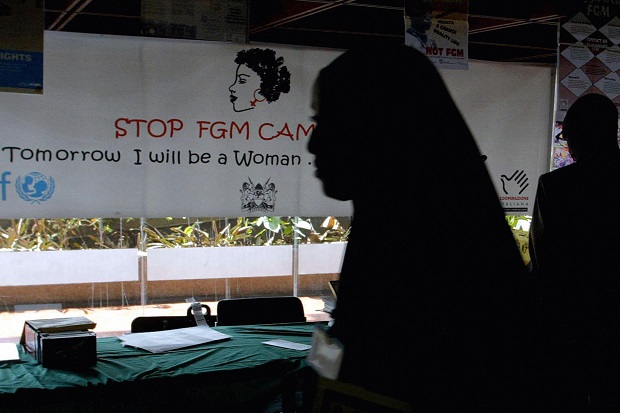The first successful prosecution in the UK for the crime of female genital mutilation (FGM) has been widely covered. Not least because the laws that made this barbaric practice a crime have been on the books since 1985 without a single successful prosecution until this week. So the fact that a 37-year old mother from east London was convicted of the crime at the Old Bailey this week is significant. But there is something about this case that still needs to be noted.
Campaigners against FGM are rightly saying that they hope that this prosecution will lead to more people coming forward to report the crime. One of the reasons why it has been so hard to prosecute the tens of thousands of such cases that are known to have happened is that by necessity in this case prosecutions largely rely on people being willing to report on – and possibly testify against – close family members.
But there is also a lesson in all this about the difference between law and custom. Over recent years if a critic of lax multiculturalism pointed to the example of FGM and what it told us about our society the response would often be ‘well it is already illegal’. And that is true. In the same way that it is illegal to groom and gang-rape hundreds of girls. Yet that too turned out to be widespread in the UK over recent decades. Whenever you raise matters such as these with, let me say for shorthand, Economist types, they are always ready with this happy solution. It is already illegal to do this. We already have the technocratic aspect all stitched up. And indeed in one way we do. But something may be against the law and yet still become a custom.
Clearly there are some hundreds of thousands of people in the UK who are aware of FGM going on either in the UK or abroad on UK citizens. Mothers who take their children to have the procedure, or do it themselves, either at home or abroad. Fathers who agree. Siblings who know about it and stay quiet. And then the circle out from there. People in positions of some authority who wonder if something isn’t up, but don’t like to make themselves heard for reasons of their own. So yes, in the UK FGM has been against the law for 34 years, but it has also been a custom which has to some degree, beyond the reach of the law, been accepted.
The grooming gang cases are again one of the only near parallels. As a number of official inquiries have revealed, in Rochdale, Rotherham, Oxfordshire and a growing list of other places, there must have been hundreds if not thousands of people who were not perpetrators in the cases but who knew something was going on. People who worked in social services, local police, hotel owners and others. The people who – as the official inquiries discovered – knew that something was happening but decided to turn a blind eye at the very least. In such places, during those periods of time, rape – including the rape of minors – was illegal, as it was everywhere else in the country. But it had also become a local custom.
In part one of ‘Democracy in America’ Alexis de Tocqueville says, ‘One does not depend on laws to reanimate beliefs that are extinguished; but one does depend on laws to interest men in the destiny of their country.’ When it was passed in 1985 the law against FGM might have seemed like a signal about the destiny of this country: a sign of what sort of country we would be and the sort of country we would not be. And that is why some attention ought to paid to why the sign didn’t work. Why were there so few people who cared what the law was, or cared so little about the message that was being given out? There is something to be grateful for in the Old Bailey prosecution this week, certainly. But underneath it are deep questions which cannot go unaddressed.
This article was originally published on The Spectator’s UK website.


















